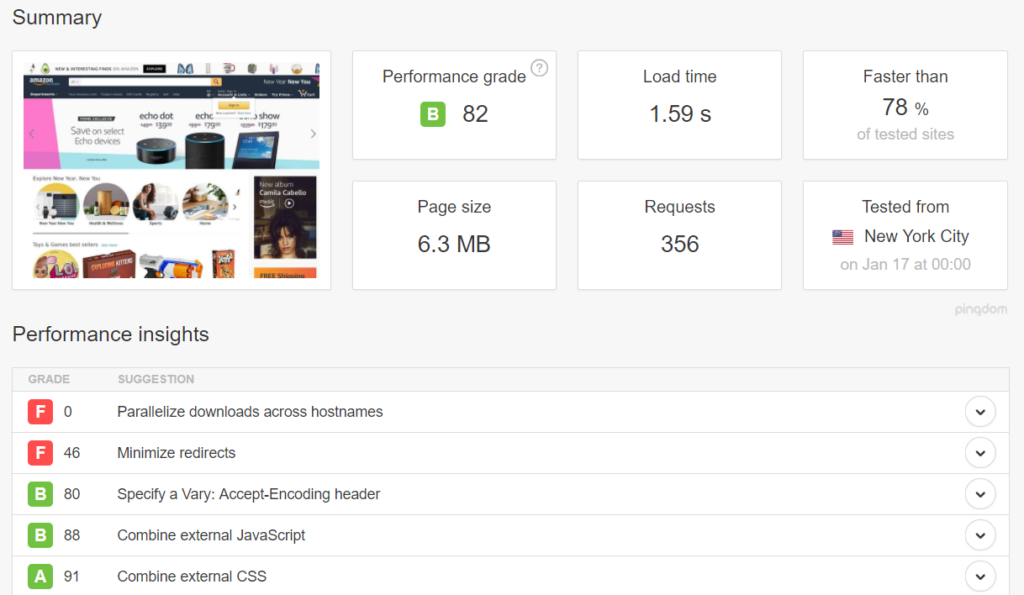Your business website SEO audit begins with a website SEO audit checklist. If you can answer “yes” to every question in our checklist, your website’s in good shape and should rank highly in the search engine results page (SERP).
? Does Your Website Fulfill Its Objective and Goals?
Just like every aspect of your business, your website must have a purpose defined by your business objectives. You and your colleagues must agree upon the site’s objective and the goals that the website must achieve.
Perhaps the objective of your website is to support your business by increasing sales, providing services to visitors, and building your company’s image through branding and providing authoritative information.
Your specific goals might refer to things like …
- Search engine optimization (SEO)
- Marketing
- Content distribution
- Conversion of visitors to leads and leads to customers
- Income generation
- Customer service
You can ensure that by the end of the year, for example, you have a measurable result to determine whether or not your website met its goals by using SMART goals…
- Specific
- Measurable
- Achievable
- Relevant and
- Time-bound
You might, for example, set a SMART goal for SEO something like, “Update 75% of our company website’s product pages with long-tailed title tags and meta descriptions by the end of the second quarter.” A set of goals like this can give you hard numbers to track.
? Is Your Website Using the Best Keywords?
How did your business decide what keywords to use on each page? Did you meet with co-workers to come up with the most relevant phrases to your business? Did you leave it up to whoever was uploading content to the website? Do you even know how it was done?
Your keywords and keyword phrases should all come from a specific, well-structured strategy to ensure that your website’s SEO helps search engines and visitors find your website. To determine the quality of your keywords, you can use these keyword research methods.
? Does your SEO Speak the Same Language that Your Persona Uses?
When conducting keyword research and performing your website SEO audit, you should have a sound understanding of the business’ customer personas and marketing strategy. What sort of people search for your business’ products and services? What are they looking for? What issues do they have that your business can solve? What language do they use when they search for things online? Are they searching for “hand cleaning gel?” or “alcohol gel hand sanitizer?” That depends upon the target persona.
How can you make sure that you’re using the best keywords for your target persona? Ask your marketing and sales staff. They talk with your customers directly and know what kinds of phrases and vocabulary they use. Your keyword phrases should reflect the way they think and communicate. Search forums and social media for ideas related to your product or service.
? Has a Keyword Tool Verified Your Keyword Effectiveness?
Tools like Ubersuggest and the Google AdWords Keyword Planner can help you come up with keyword phrases, including long-tailed keywords. Both provide results based on what people actually search for. The Google tool even provides search volume and other information that can give you an idea of how effective a keyword might be.
? Does Your Site SEO Target Competitor Keywords?
You can learn words and phrases that your competitors use on their website by reviewing their content. You’ll see the keyword phrases repeated in title tags, meta descriptions, h1 tags, and text. Also, Google Planner can help you to find what search phrases are most associated with competitor web pages. Just use a URL from their site instead of your own and leave out the keywords.
? Does Your Website Load Quickly?
Test your website speed with Pingdom to get diagnostics and suggestions related to your website loading time. If your site takes more than three seconds to load, it can negatively affect your rank on the search engine ranking page (SERP).
Pingdom shows load time and provides performance insights.

? Is Your Website Mobile Friendly?
Google gives priority to mobile websites now. It reports, according to Search Engine Land’s summary of research from Hitwise, that searches on mobile devices account for nearly 60% of all searches globally. Make sure that your website is responsive and that it works effectively on mobile devices. Google now weighs mobile friendliness high in its page ranking factors.
? Are Your Keywords Used in Moderation?
Google and other search engines will nail your website if you have spammy, keyword-loaded content. In addition, if you have several pages competing for the same keyword (that’s called, “keyword cannibalization”), it can affect the individual conversion rate of your individual pages. That means targeting the same keywords on multiple pages will negatively impact your page rank. Make sure that your content uses keywords in moderation and that pages do not compete for keyword phrases.
? Are Your Redirects in Order?
If your website has a 301 redirect, make sure that it redirects to the preferred domain. Be sure to use 302 redirects to focus ranking power on the correct target page. Does your website have 404 errors without proper redirects? These errors occur when Googlebot tries to crawl deleted or renamed web pages without proper redirect information. Excessive redirect chains can slow down your website, so make sure that you review and fix all of them.
? Does Your Website Have Effective Architecture?
Is your website architecture efficient for search engines? Does it have a sitemap? Is metadata unique on all pages? Are your pages free of duplicate content? Is your robots.txt file helping search engine crawlers? Can users readily navigate your site with its current architecture? Do your web pages have logical, structured URLs? Are URLs search engine optimized?
? Do Page Titles, Headers, and Meta Descriptions Contain the Keyword?
Search engines are configured to look for keywords in page title tags, headers, and meta descriptions. They’re not so keen on clever titles that don’t have keywords. Clever titles will catch human eyes, but they don’t inform search engines what your content is about.
It’s not necessary for every header on every page to contain keywords, but your pages title tag should contain your target keyword. It should also appear in some of the headers and in your meta description.
Of course, it should also go your body content, especially in the first few sentences of copy. Search engines will be looking for it there.
? Are Your Images Search Engine Optimized?
Search engines look at information on your images. Each image has an alt tag, and the first image should have your keyword in the alt tag. If it works well with other images, you might want to include it in others, without overdoing it.
? Does Every Page Contain Quality Content?
Search engines have become pretty proficient at understanding quality content. They can tell if your content is unique, its length, if it’s free of grammar and spelling errors. They can also tell if it has links to other quality content, has internal links, and how it compares to that of your competitors.
It seems that modern search engines can even determine how engaging your content is, and if it’s useful, informative, accurate, and factual. It’s getting harder and harder to pull the wool over the search engine eyes. Make sure that every page has quality, original, engaging copy supported by authoritative internal and external links.
? Are Your Pages Free of Spam and Excessive Advertising?
When performing your website SEO audit, be aware that search engines are in the advertising business, but they will downgrade a site for having too much advertising or spammy links in their content. If you use advertising on your website, make sure that it’s used in moderation.
? Does Your Website Provide a Good User Experience?
Check to see what your page bounce rates look like. If you have very high bounce rates, it might be time to evaluate your content and usability. How much time are users spending on the site? If it’s less than a minute, this can be a red flag.
Make sure that you have goals for the elements of your pages. For example, a call to action should have a target click rate. Have you set up tracking for goal completions? If not, you need to do so to ensure that you can measure user experience and engagement.
If you have pages with high exit rates, you may want to review and modify them, or even eliminate them. If you have pages with high visitor return rates, examine them to see why they convert well and learn how to create similar content on other pages.
? Are Your Links Working for Your Business?
All links on your website, whether internal or external, should be relevant to the content presented within it. They should link to diverse authoritative websites … both homepages and deep page links.
Although you want to make sure that your business website’s pages are supported by authoritative links, you don’t want to overdo it. Your exact match anchor text, for example, should be low. You want original copy and links that reflect that.
? Is Your NAP-W Information Consistent?
Your NAP+W Information refers to your business
- Name
- Address
- Phone Number
- Web Site
Search engines expect them to be consistent from page to page.
_________________________
Website SEO Audit Checklist Recap
Upon finishing your website SEO audit using our SEO audit checklist, if you answered, “yes,” to most of these questions, your website is in pretty good shape. Keep working on it until you can answer, “yes,” to all the questions, and your website will rank higher on the SERP.
If you need help analyzing your website’s optimization, let us perform a website SEO audit for you to help you boost your website traffic and raise your rankings in the search engines.


